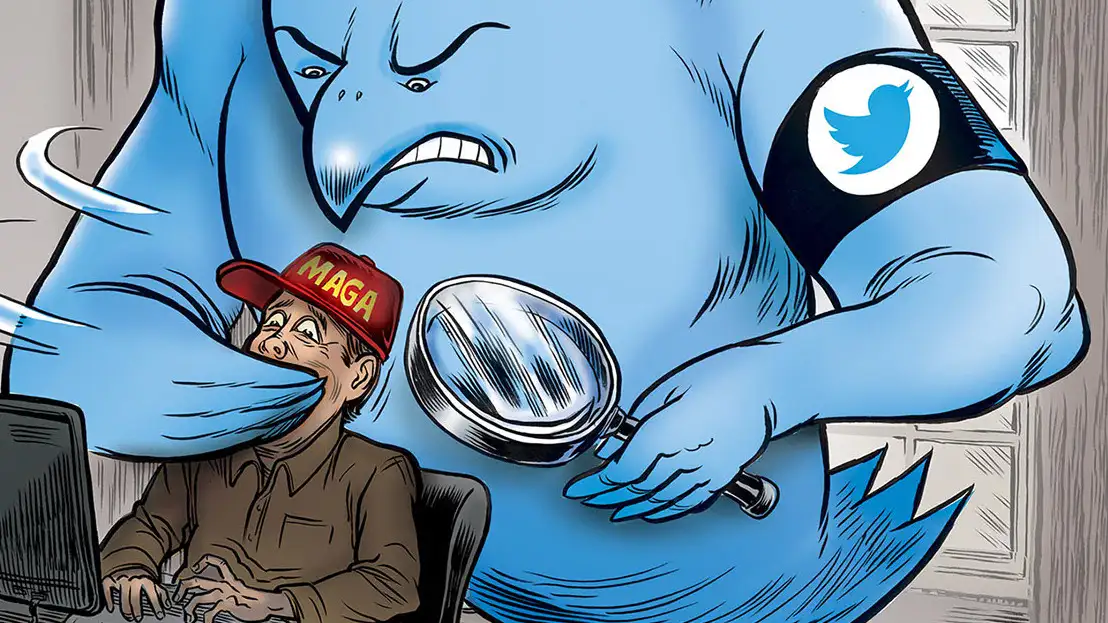Breaking news: @UNESCO just unveiled action plan to regulate social media platforms.
This is a result of extensive worldwide consultations, backed by a global opinion survey underlining the urgent need for action.
Read more: https://t.co/AKxfeyr318 #InternetForTrust pic.twitter.com/UxTxrxi5K7
— UNESCO 🏛️ #Education #Sciences #Culture 🇺🇳 (@UNESCO) November 6, 2023
Digital technology has enabled immense progress on freedom of speech. But social media platforms have also accelerated and amplified the spread of false information and hate speech. To protect access to information, we must regulate these platforms without delay, while at the…
— UNESCO 🏛️ #Education #Sciences #Culture 🇺🇳 (@UNESCO) November 6, 2023
Internet platforms must be accountable and ensure that all democratic processes stay accurate and unbiased.
With UNESCO’s new Guidelines on the governance of digital platforms, we have the tools to do so.
Now, it’s time to act: https://t.co/AKxfeyr318 #InternetForTrust pic.twitter.com/rmFf6skPbi
— UNESCO 🏛️ #Education #Sciences #Culture 🇺🇳 (@UNESCO) November 7, 2023
Online disinformation is a growing concern.
According to an @Ipsos survey from 16 countries: 85% worry.
87% fear its impact on voter behaviour.
This calls for collective action.
Explore @UNESCO’s plan to regulate online platforms: https://t.co/AKxfeyrAQG #InternetForTrust pic.twitter.com/Muaya2qcyL
— UNESCO 🏛️ #Education #Sciences #Culture 🇺🇳 (@UNESCO) November 6, 2023
The UN is fed up with having to call out the Jews.
They’re going to shut down all information, so they never have to attack the Jews ever again.
More than 85% of people are worried about the impact of online disinformation and 87% believe it has already harmed their country’s politics, according to a global survey, as the United Nations announced a plan to tackle the phenomenon.
Audrey Azoulay, director general of the UN’s culture body, Unesco, told reporters on Monday that false information and hate speech online – accelerated and amplified by social media platforms – posed “major risks to social cohesion, peace and stability”.
Regulation was urgently needed “to protect access to information … while at the same time protecting freedom of expression and human rights”, Azoulay said as she presented a “governance blueprint” for governments, regulators and platforms.
You haven’t even seen disinformation yet.
This has not even begun.
Wait until the AI can make 30-second video clips indistinguishable from real life in 90 seconds with normal Nvidia cards based on nothing more than a text prompt.
That’s when the disinformation age truly begins. You will have no ability to confirm what is or isn’t real without seeing it yourself.
A Unesco-commissioned survey in 16 countries due to hold national elections next year – with a total of 2.5 billion voters – showed how pressing the need for effective regulation had become, the organisation said.
The survey by pollster Ipsos of 8,000 people in countries including Austria, Croatia, the US, Algeria, Mexico, Ghana and India, found that 56% of internet users got their news mainly from social media, far more than from TV (44%) or media sites (29%).
…
Guilherme Canela de Souza Godoi, Unesco’s chief of section for freedom of expression, said more than 50 countries were already regulating social media, but often not in accordance with international free speech and human rights norms.
The guidelines represented “a strong blueprint based on a human rights approach, designed to inform and inspire governments and regulators”, he said, adding that several African and Latin American countries had already expressed interest.
…
Platforms must moderate content effectively and at scale, in all regions and in all languages, and be “accountable and transparent with regard to algorithms that are too often geared towards maximising engagement at the cost of reliable information”.
Yikes.
This has a deep relationship to revelations about the “MACHINE DAWN,” that is, the fallout of AI.
However, AI Week Blitz has been unfortunately postponed for at least the rest of the week, so you will have to wait for that.
Misinformation & hate speech are spreading at an unprecedented rate thanks to digital tools. To tackle this issue, UNESCO has drawn up an unprecedented global strategy, which was unveiled today. Learn all about it in this interview with Guilherme Canela. https://t.co/IDPPvbzGJw
— UNESCO 🏛️ #Education #Sciences #Culture 🇺🇳 (@UNESCO) November 6, 2023
See: If Fake News is a Problem for Democracy, Then Democracy is a Problem
